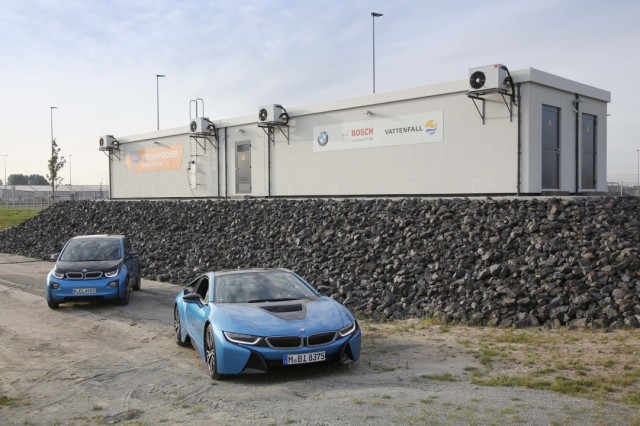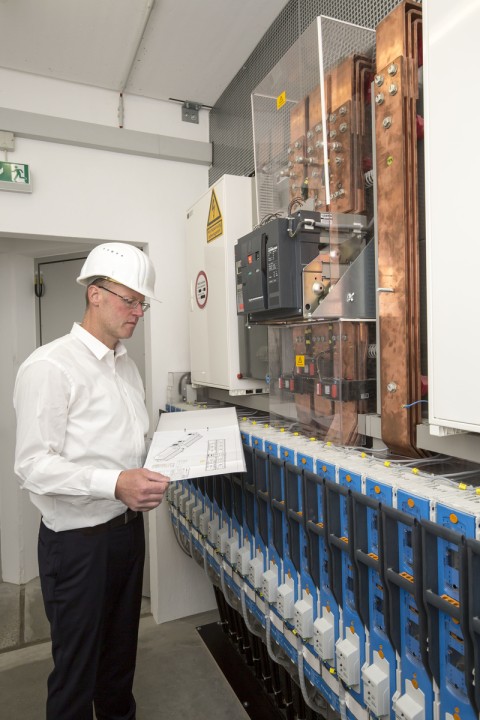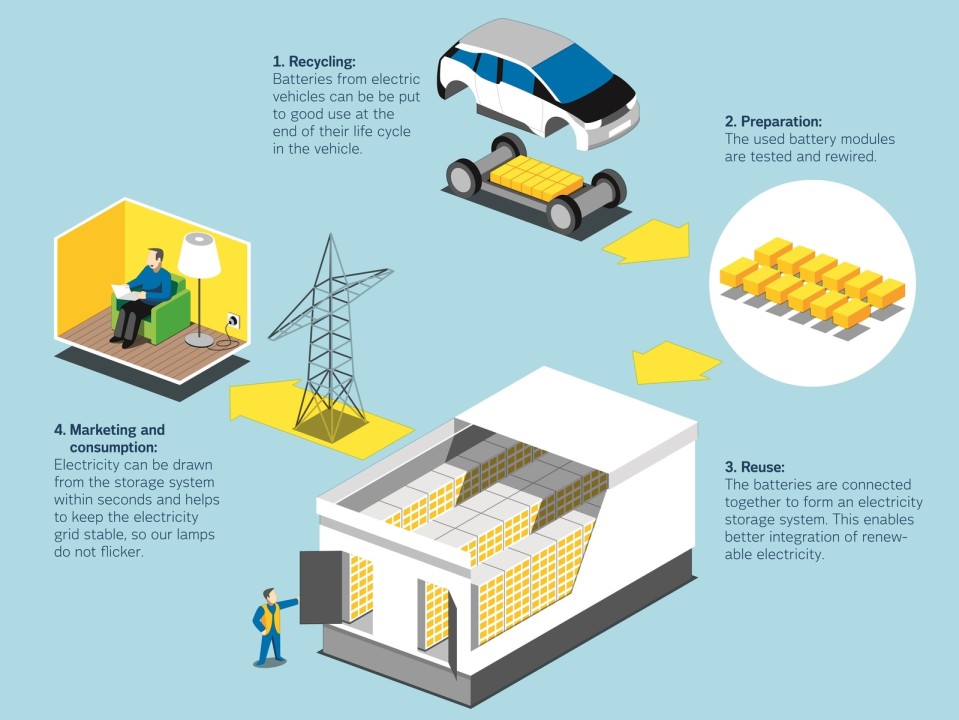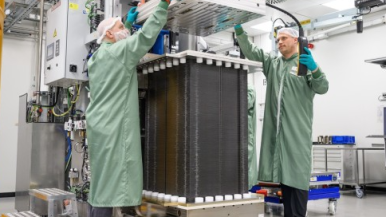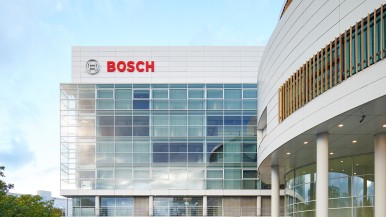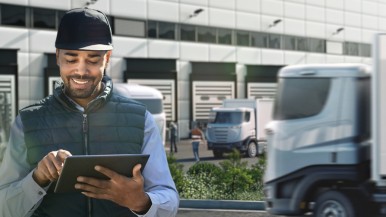Hamburg/Munich/Stuttgart – What should be done with still-usable batteries at the end of their life cycle in electric vehicles? The Battery 2nd Life project organized by Vattenfall, BMW and Bosch merges them into a large storage facility in Hamburg, Germany, to keep the electricity grid stable.
Storage stabilizes the electricity grid within seconds
Electromobility and electricity storage are two core elements of the new energy landscape. Used batteries from electric vehicles are being merged to form a large electricity storage facility in Hamburg. The stored energy is available within seconds and can help to keep the electricity grid stable. Electricity storage is essential to enable a stable electricity supply with alternative energy sources. Natural fluctuations in solar power plants and wind turbines must be compensated as much as possible using storage methods with the greatest possible efficiency.
After successful completion of the design phase, Frank Horch, Hamburg Senator for Trade, Transport and Innovation, today threw the switch for trial operation of an electricity storage facility in the Hamburg Harbour district. The storage facility developed by Vattenfall, BMW and Bosch is situated near the Steinwerder Cruise Centre and in future will supply electricity to ensure grid stability.
2 600 used battery modules from over 100 electric vehicles
The electricity storage facility consists of 2,600 battery modules from over 100 electric vehicles. It has a power rating of two megawatts (MW) and a storage capacity of 2,800 kilowatt-hours (kWh). This is enough to supply electricity to an average two-person household for seven months. However, the stored energy is not intended for general supply, but instead is sold on the primary control reserve market by Vattenfall, along with power from other flexibly controllable facilities. The storage facility delivers primary control reserve power necessary to keep the 50 Hz grid frequency stable. Primary control reserve power must be available within a few seconds.
The joint project provides a useful second life for batteries previously fitted in BMW electric vehicles which have reached the end of their life cycle in the vehicle. After the used batteries have been tested and wired up, they are merged into the electricity storage facility where they constitute an important resource of the new energy landscape in stationary deployment.
Quotes from the involved companies
“Bosch develops turnkey storage solutions for energy suppliers and industrial enterprises. Electricity storage systems are a key success factor for the new energy landscape. Thanks to smart electronic controllers, these storage systems can absorb excess electricity and release it again very quickly when needed.
That way they help to stabilize the electricity grid. We expect to gain valuable knowledge from the Battery 2nd Life development project, and we regard it is as an important step on the way to a more efficient and more decentralized energy system,” says Cordelia Thielitz, General Manager of Bosch Energy Storage Solutions.
On the occasion of commissioning the facility with the project partners, Pieter Wasmuth, Vattenfall's Executive Manager for Hamburg and Northern Germany, said: “Our stated goal is to integrate this battery storage facility into the energy system and to give a large number of similar small local facilities access to the market through electricity trading.” Catrin Jung-Draschil, Vice President of Portfolio & Business Development in the Wind Business Unit, added: “Storage of renewable energy is a key aspect of climate protection and the new energy landscape in Germany. Together with our partners, we are making an important contribution to sustainable energy supply by smart control of used vehicle batteries.”
Dr Bernhard Blättel, Vice President Mobility Services and Energy Services, BMW Group: “The BMW Group is fully committed to electromobility with our BMW i model. Initiator projects for the charging infrastructure and energy management play a key role in this. The battery storage facility officially opened today represents an important milestone in the further optimisation of battery management. In future, with BMW Storage we will be able to offer efficient battery storage solutions tailored to customer needs. In the context of the new energy landscape, the BMW Group regards energy storage as the core component of energy management. That applies to storage in vehicles as well as stationary storage systems. In future, battery storage systems will also make a significant contribution to increasing the sustainability of electromobility. We can look back on a successful collaboration, and we have gained valuable insights from this cooperative development project.”
About the Battery 2nd Life project
The Battery 2nd Life development project organized by Vattenfall, BMW and Bosch kicked off in 2013 for a planned term of five years. The project partners hope to learn more about the ageing characteristics and storage capacity of used lithium-ion battery modules. Along with the electricity storage facility near the Steinwerder Cruise Centre in Hamburg, the project encompasses two other measures: Used batteries have been providing interim storage and power buffering for fast-charge stations in Hamburg's HafenCity district since September 2014. In another application, energy consumption from the photovoltaic facility of Vattenfall's HafenCity district heating station is being maximized by interim storage of energy in batteries during sunny periods with low electricity demand.

